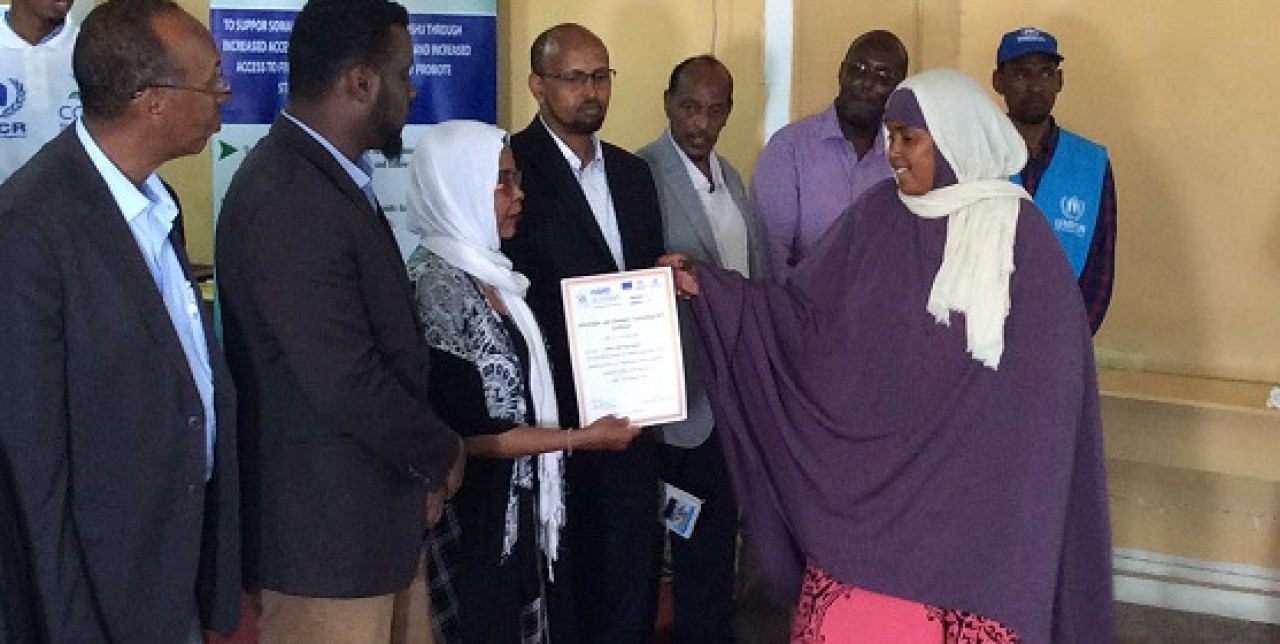28-09-2017 | di COOPI
Somali refugees return home and achieve vocational certificate
Last August 13th, in Mogadishu, capital of Somalia, 160 people achieved a Technical and Vocational Education and Training (TVET) certification, as part of a project created by COOPI in collaboration with the UNHCR, the United Nations High Commissioner for Refugees
This project aims at integrating a group of Somali refugees, returning from Kenya, and internally displaced persons by improving their vocational skills and supporting the start of small business activities for self-reliance. In Somalia, where employment opportunities are limited for the local population, it is even more difficult for refugees, returnees and asylum seekers to enter the labour market and to find means of livelihood. Therefore, we are enhancing their marketable skills, creating better links to job offers and supporting them with capital investment, so that in the end they will be able to create and manage their own small business.
Participants of the TVET course have specialised in different sectors: tailoring, handicraft, information and communication technology, hospitality, beauty, mechanics.
On the 20th of September the following phase of the project was initiated through the implementation of a course in Business Development Skills course - during which participants will learn how to prepare a business plan and how to become an entrepreneur.
The education providers are based in Mogadishu and include: Save Somali Women and Children (SSWC), the Hano Academy, Ruweyda Beauty Salon Institution, Hoyga Farsamada Baabuurta ee Laameer.

The ceremony had a high turnout of government officials, members of the international NGOs, UN agencies, local organizations and representatives from the private sector.
Coopi's regional representative also attended the ceremony and shared her enthusiasm with the beneficiaries, encouraging them to keep improving their capacities and work constantly to reach their goals.




 Somalia
Somalia


